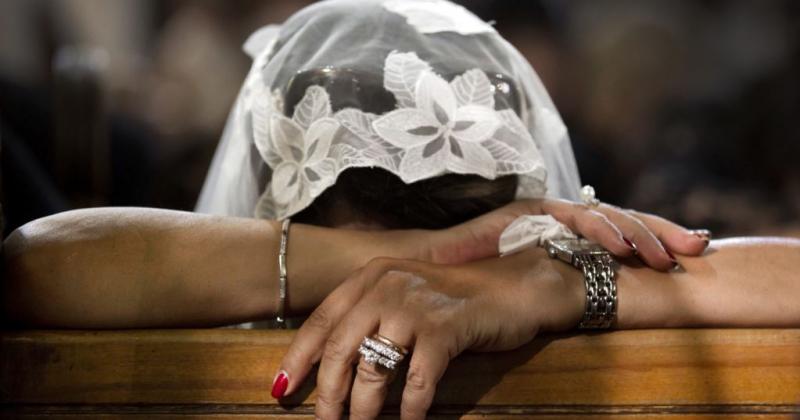They trace their founding to the voyage to Alexandria of St. Mark, the apostle of Jesus and New Testament author. Just a decade or two after the original Easter, which Christians celebrate around the world, tradition states that Mark founded their church, one of the earliest in the Middle East and the first in Africa. It was to become a pillar of early Christendom.
Some 2,000 years later, Egypt’s Coptic Christians have become the preferred target of the Islamic State group, an apocalyptic cult seeking religious war.
Inside the Arab world’s most populous country, IS seeks to sow discord, undermine President Abdel-Fattah el-Sissi and split the country. It’s a strategy the group has used before in Iraq, undermining trust in the government and inciting Shiites against Sunnis to provoke a backlash. That strategy looks unlikely to work in Egypt, where Sunnis vastly outnumber the Coptic minority, who make up some 10 percent of the population of 92 million and who are overwhelmingly dedicated supporters of el-Sissi. But it does whittle away at the Christians’ sense of security.
A look at Egypt’s Coptic community, its traditions and challenges in the Middle East:
What Copts Believe
Like Catholics, Copts believe in the Ten Commandments, practice sacraments such as baptism, confession and confirmation and the intercession of the saints. But the Coptic Orthodox Church split from other Christians in 451 A.D. over a dispute about the nature of Christ. Unlike Roman Catholics, they do not believe in the infallibility of the Pope or in purgatory. They believe in the immaculate conception of Jesus, but not of the Virgin Mary. Their priests can marry.
Copts celebrate Christmas according to the Julian calendar, meaning it falls on Jan. 7. The run-up to the holiday is marked by a 40-day period of fasting when red meat, poultry and dairy products are forbidden. Copts break the fast with feasting and celebrations after a Christmas Eve liturgy that ends near midnight. Easter is preceded by a 55-day fast where no meat, fish or dairy is eaten.
Persecution in Modern Times
In modern times, relations with Muslims have been generally good, although changes started to come about since the hyper-nationalism of the 1950s stoked by military strongman Gamal Abdel-Nasser. In Nasser’s drive to liberate the country from Western influence and purify the Arab nation, Christians — whose religion is more often practiced in the West — began to take on a less favorable light among the majority Muslim masses.
Many Copts consider themselves to be descendants of the ancient Egyptians, with a direct connection to pre-Arab times — hardly a view that made them popular in the days of pan-Arabism. As conditions in Egypt worsened following a series of Middle East wars, the Copts began an exodus. President Anwar Sadat’s overtures to Islamists and his addition of references to Islamic Law, or Shariah, to the constitution spurred on the departures and millions of Copts live as expatriates today.
Although generally allowed to practice their religion inside Egypt, Copts face restrictions on inter-religious marriage, and church building, and converting Muslims. Activists say Copts are discriminated against and kept from high office, and have thus campaigned to have religions removed from Egyptian ID cards.
Coptic Christians Targeted by Extremists
While sectarian killings did happen as early as the 1970s, they have been mostly sporadic over the years, with the exception of the 1990s, when the state battled an Islamic insurgency and Copts faced some retaliation.
On New Years’ eve 2011, a bomb in an Alexandria church killed over 20 people — the first major assault with a high death toll in living memory and a crime still unsolved to this day. Attacks picked up in the aftermath of the Egypt’s Arab Spring uprising that began weeks later, then more so after the army overthrew an elected but divisive Islamist president in 2013.
The next major milestone came in December 2016, when an IS suicide bomber killed 30 people at Cairo’s Coptic Cathedral. The group subsequently called for more attacks on the minority and pledged more of its own.
In February, a series of murders and killings claimed by IS in northern Sinai led hundreds of families to evacuate the area, fleeing west. The most recent major attack came on Palm Sunday.
